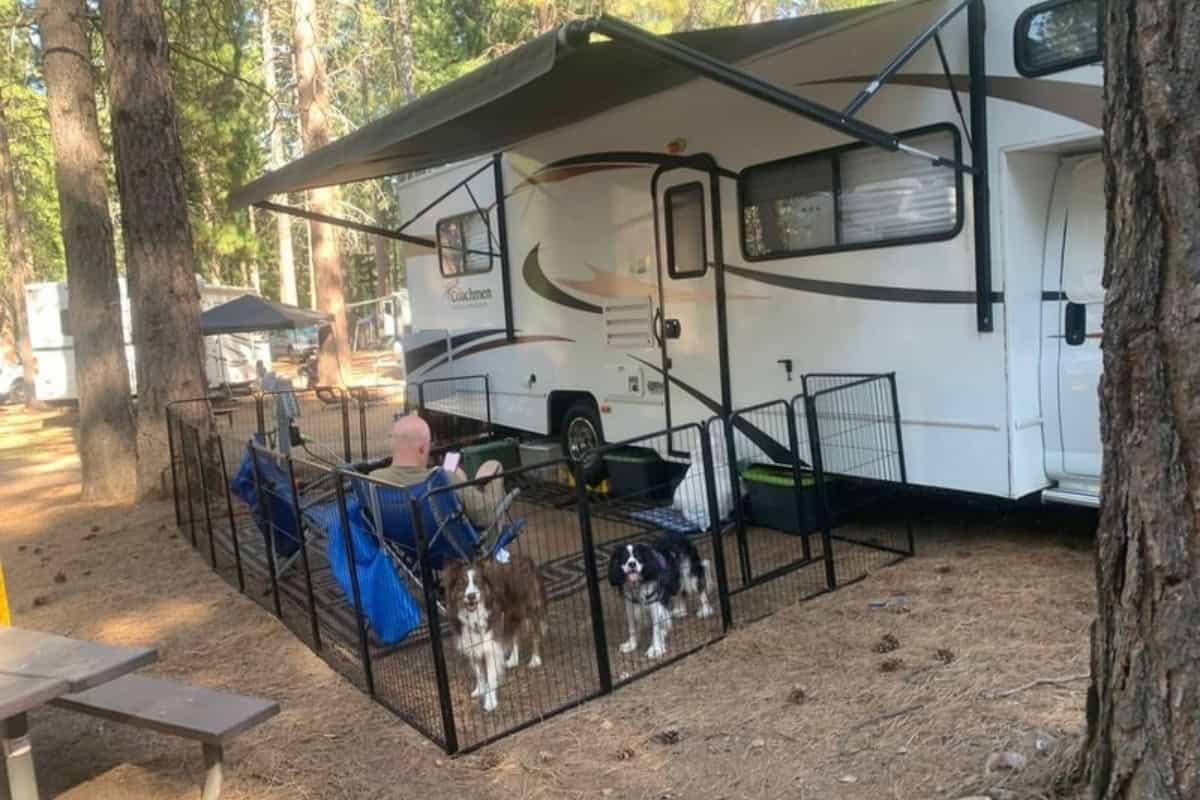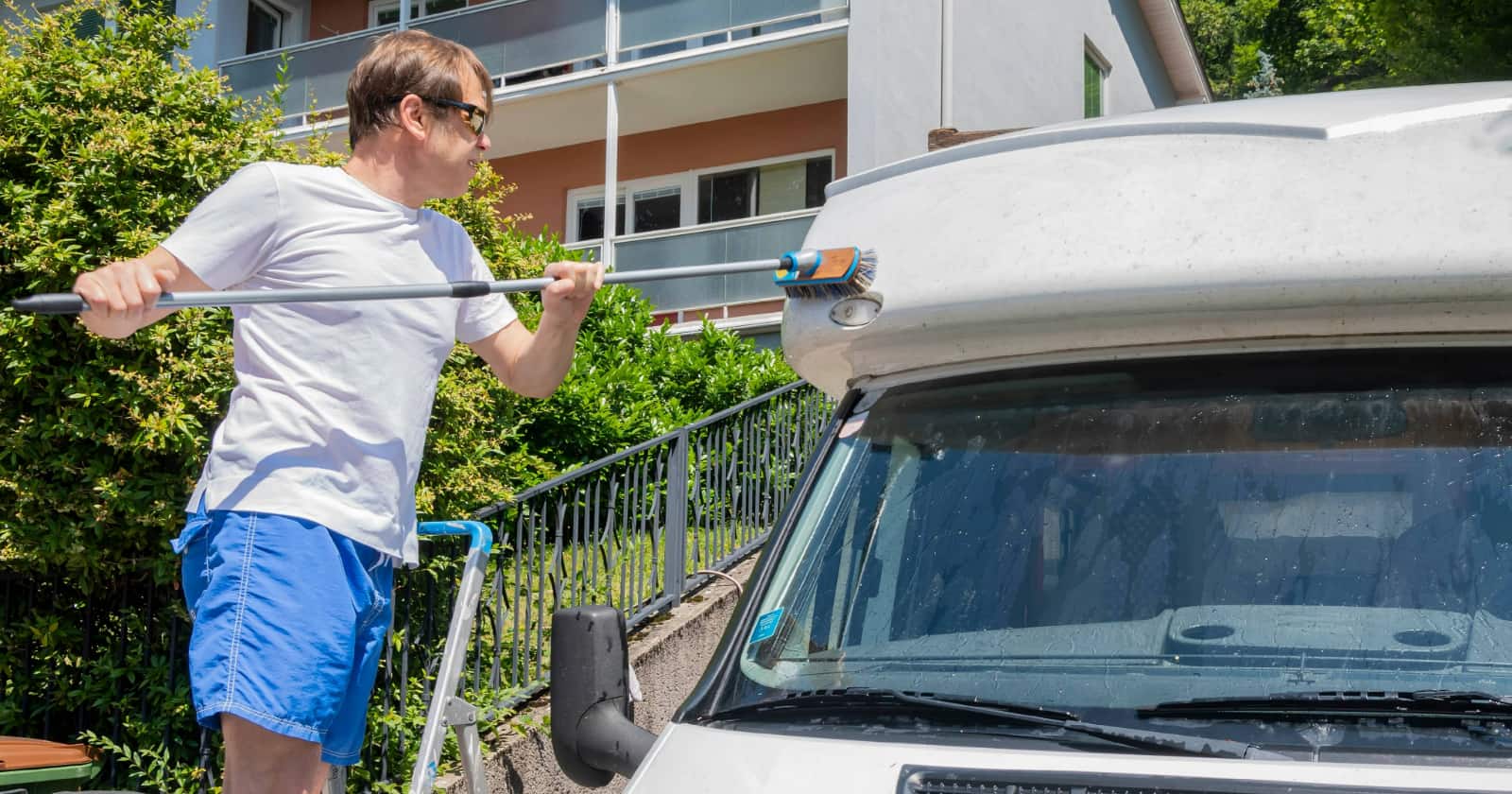
10 Things You Should Know About Motorhome Repair
1. It helps to be handy
The majority of motorhome repairs will be small issues. These could range anywhere from a fallen piece of trim to a loose stair, or even a leaky outside seal. These are things that, if you are able-bodied, can be handled with a quick trip to a hardware store and a bit of your time.
Carrying basic tools with you is important for any motorhome repair project. In addition to tools, we always make sure to carry a variety of screws, drill bits, sockets, and wrenches. Also, never travel without duct tape!
2. The waitlist at an RV service center will be long
The RV industry experienced a major boom during the pandemic. More rigs were sold than any other time in history. This also means they have been built faster than usual for the manufacturers to meet demand. Faster almost always means a drop in quality; therefore, many new RVs are now requiring motorhome repair.
Many turn to their RV’s service center, and some opt for shops authorized by their manufacturer’s warranty. Because there are more RVs, and potentially more issues than in the past, the wait times at an RV service center can be weeks or even months.
Also, bear in mind that even when you get in, your RV will not be repaired in a day. The service center has to communicate with the manufacturer or warranty company to authorize repairs and reimbursement. The onsite RV tech will have to confirm and/or verify the issue. Parts have to be ordered and received.
Meanwhile, more RVers are lining up to get service. If you do opt for an RV service center, check online reviews thoroughly before choosing a shop.
3. Mobile RV techs can save you a lot of time
If your repair isn’t warranty-based, a mobile RV technician can be very helpful! For starters, they come to you. Many RV techs aren’t allowed to perform warranty repair based on a variety of state laws. Check with your manufacturer if you’re under warranty and if your RV and location allow for certified mobile techs to help you out.
If not warranty work, then mobile RV techs are a fantastic choice. They are usually experienced on a variety of RV types, they are often great troubleshooters, and it is in their best interest to be quick about the work so they can get to the next customer.
In addition to RV techs, there are other mobile services in different areas, too. For example, in Pennsylvania, we were able to use a mobile tire company to come out to our campground and put on new tires on our triple axle fifth wheel. We ordered the tires online and had them shipped to the campground before we even arrived.
The tire company brought out a mobile van with everything needed to install them, including equipment to balance the new tires. They also provided information on the right parts we needed to get our tow vehicle’s TPMS to work with the non-standard RV rims we have. And we never had to move the RV!
4. Parts might be hard to come by
We ordered replacement parts for our RV furnace, even though we didn’t need them. Then, a few months later, after two days of our furnace working just fine in freezing temperatures, the third day it failed.
Fortunately, we had the four primary replacement parts to get up and running quickly and to ensure our water lines didn’t freeze. We simply replaced all four parts and ordered another round to have on hand. With the microchip shortage, however, the new furnace control board took several weeks to ship.
Having extra parts on hand for common issues can save time, money, and frustration. In addition, if you have an RV service center or mobile RV tech do repairs for you, having those parts in advance can mean a huge difference in time if you cannot get them ordered quickly.
5. Does warranty coverage work?
There are countless anecdotes on the internet about how a manufacturer’s or third-party extended warranty didn’t cover the repairs someone needed. Read through these warranties in detail and ask questions for clarifications.
Always get the name and identifier of who you spoke with, and if possible, get a copy of the answers in print or email for future reference and proof. The warranty industry is in the business of not paying when they don’t have to or can get out of it, much like insurance.
6. Utilize family and friends with expertise
If you can wait, and it isn’t a critical repair, the next time you visit with friends or family, perhaps you can get them to assist you. Maybe they have more experience, skill, tools, or even just more strength! There’s no shame in asking for help. That’s what family is for, right?
7. Roadside assistance can be useful
There are many sources of roadside assistance available. You may even have multiple roadside assistance packages that you aren’t aware of, as they can be offered by your RV insurance company, RV manufacturer, cell phone plan, or even credit cards in some cases. And you can purchase additional coverage through a number of avenues like AAA, Good Sam, and more.
Having a good roadside assistance package can make the difference between spending the night beside the highway and arriving within a reasonable time to your destination.
Bear in mind that, like insurance policies and warranty coverages, there are details and fine print to examine when comparing these assistance packages.
8. Have your manuals, diagrams, and build sheets handy
RVs are made constantly, with features changing from year to year, and even having different build-outs within the same year. If you can, keep a parts list of what is installed. Knowing which model of refrigerator or furnace you have can help you find the right parts faster.
Some build sheets contain serial numbers, which can make contacting a manufacturer’s support much faster and easier. It may also help you find solutions to your issue or help you determine if it falls under a separate warranty!
9. Your RV insurance might be helpful
There are certain repairs that can be costly enough that seeking out assistance from your insurance company may be the way to go. Class A motorhome windshields, for example, can cost thousands to repair.
An RV roof that is damaged can also be quite costly, but often an insurance company will require a separate policy or rider to your current policy to cover a roof. Discuss your policy in detail with your insurance agent to ensure you have the correct coverage for your RV type and budget.
10. Preventative maintenance is your best friend!
Many repairs can simply be avoided by performing routine RV maintenance. Be sure to check the caulking around windows and seals, and strip and replace it when you see flaking or gaps.
Periodically check every screw you can find! In the past six months, we’ve tightened probably 50 screws that have begun to “walk out.” Ensure you lubricate things that move such as slide rails. Every so often, check your roof for worn-out lap sealant around vents and fans. Catching symptoms early can help you avoid costly future repairs such as leaks.
Make sure you keep track of all your RV maintenance and repairs with an online tool such as RV LIFE Maintenance from RV LIFE. Not only can you keep all of your documents in one place, but you’ll also receive timely reminders when maintenance is due to help you avoid costly repairs and potentially serious accidents.
Related articles:



